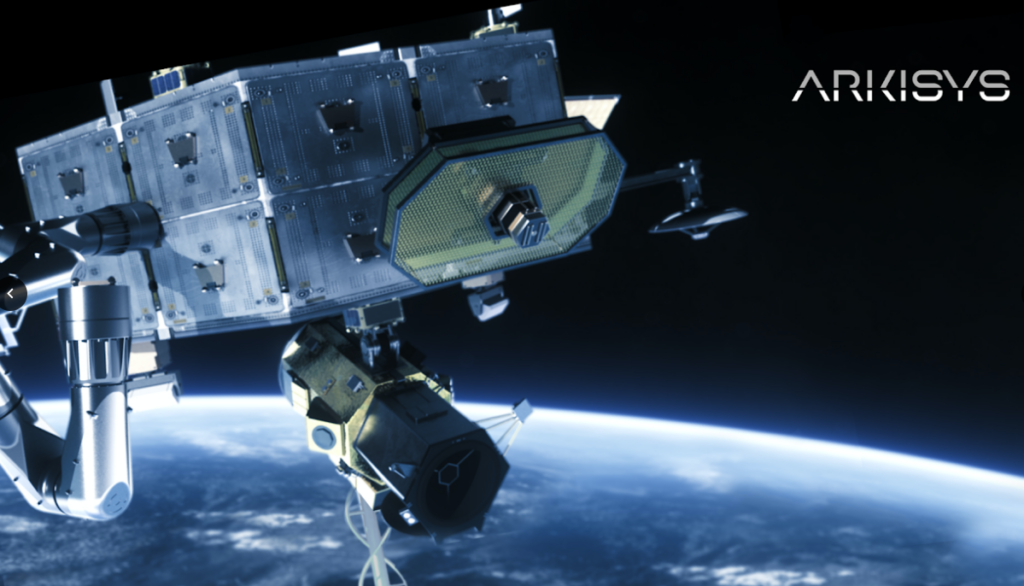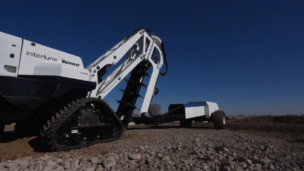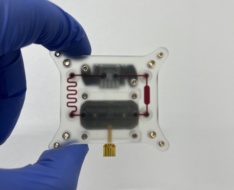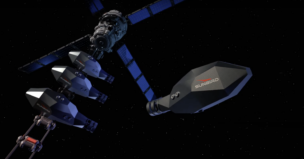Arkisys is a space infrastructure-as-a-service startup that’s stayed relatively quiet about engineering efforts until this week.
Yesterday, the Southern California startup revealed a “port module wedge,” the first tangible building block toward its goal of creating an orbital outpost. At a Pasadena, CA, event, Arkisys showed off the ~1x~1 meter component to a group of partners, prospective customers, and government officials. The wedge is the atomic unit of “the port,” a modular, robotic platform that Arkisys plans to assemble in low-Earth orbit (LEO).
The port
Arkisys likens its LEO outpost concept to a commercial seaport. “Ships coming and going, cargo going on and coming off…We want to enable that level of quantity and tempo and simplicity, but in space,” Arkisys CEO David Barnhart told Payload. While it will take some time for any space port to match the throughput of one on Earth servicing the commercial shipping industry, the comparison makes sense. The port could host space vessels and provide additional services.
The market
Barnhart divvied up the port’s user base into three categories:
- The existing market of “everything focused on the Earth,” such as hosting Earth observation and communications payloads. But this category could also include docking for microgravity experiments or new types of vehicles.
- Space “servicing,” i.e. extending a satellite’s lifespan, refurbishing/repairing spacecraft, or otherwise salvaging parts from debris.
- The “undiscovered market,” which consists of space-to-space services lacking immediate demand but commercial applications later this decade. These are the unknown unknowns—a new class of payloads, experiments, and use cases we can’t necessarily fully envision today.
Funding history
Arkisys hasn’t disclosed any venture investors or private backers. Last year, the company received a $366,000 contract from the Pentagon’s Defense Innovation Unit (DIU), as spotted by SpaceNews, for uncrewed orbital outpost concepts.

The feasibility
“All the technology exists today. It’s an integration task to get it up there,” Barnhart said. To expand its addressable market, Arkisys needs its software and hardware to be interoperable. The company has designed the port from first principles, Barnhart suggested, by trying to make its interfaces and protocols as universally compatible as possible.
On-orbit assembly is another obvious challenge. On capital constraints, Barnhart said: “The good thing is that this is not a billion dollar activity. The bad thing is that it’s not just a million dollars.”
The final bottleneck that Arkisys must solve is speedy data transfer rates back down to Earth. Customers will want to act on the data as quickly as possible, Barnhart noted.
Looking forward…
The startup is already in talks with launch providers, as it’s targeting 2023 to bring the first port module into space. Eventually, Arkisys would want monthly port arrivals, implying launch cadence and capacity beyond what’s offered today. Beyond launch, the company will succeed if the rest of the industry does, too. Seaports need a robust shipping industry to survive and thrive.




